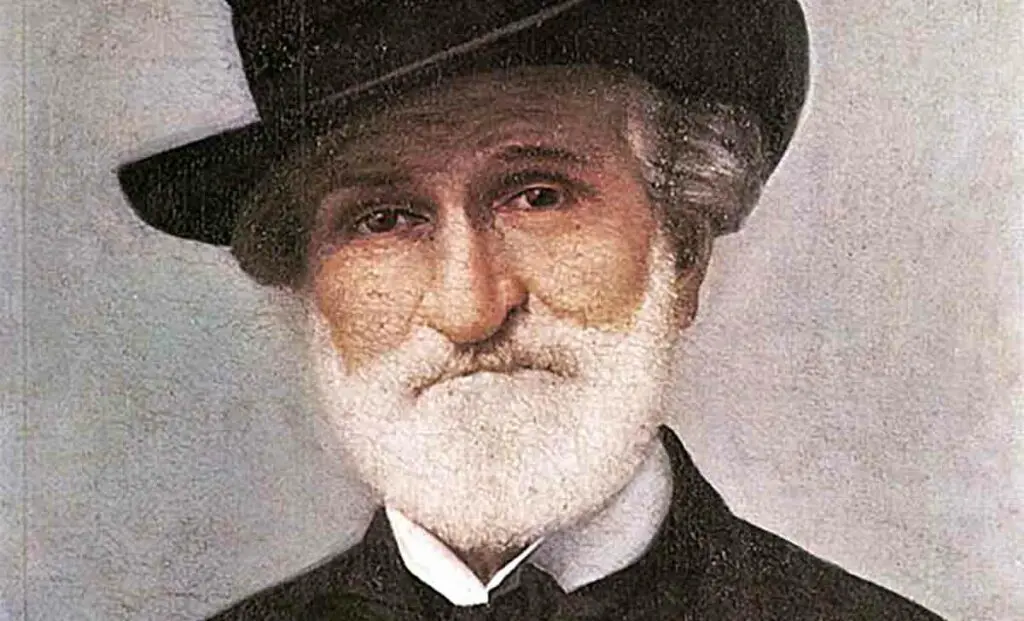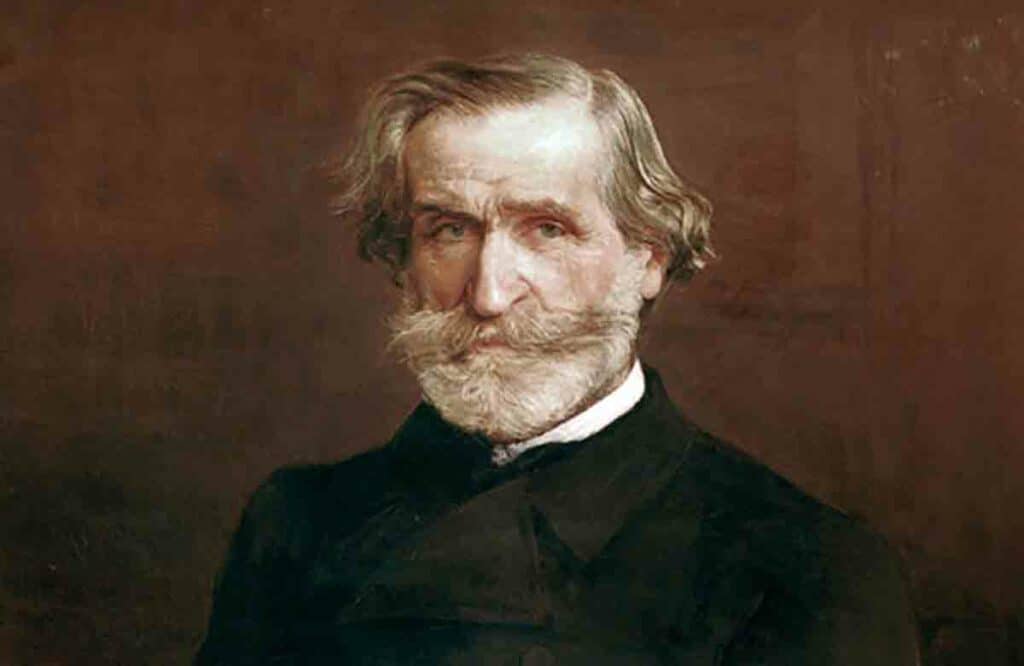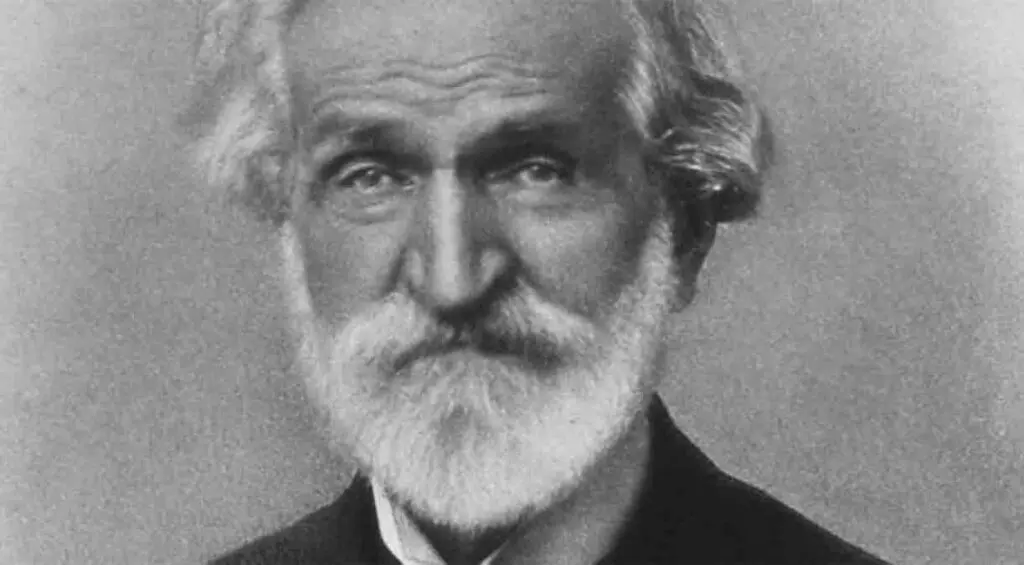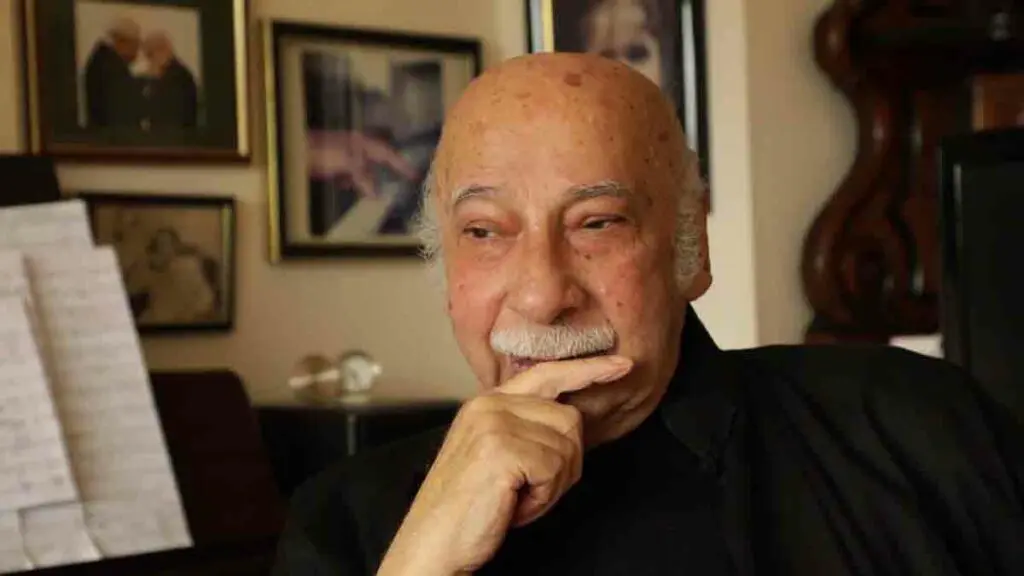Giuseppe Verdi is a real treasure of Italy. The peak of the maestro's popularity was in the XNUMXth century. Thanks to the works of Verdi, classical music fans could enjoy brilliant operatic works.
The composer's works reflected the era. The maestro's operas have become the pinnacle of not only Italian but also world music. Today, Giuseppe's brilliant operas are staged on the best theater stages.

Childhood and youth
He was born in the small village of Le Roncole, not far from the provincial town of Busseto. At the time of Verdi's birth, this territory was part of the French Empire.
The maestro was born on October 10, 1813. Verdi was brought up in an ordinary family. The head of the family had a small tavern, and his mother held the position of a spinner.
He was interested in music from an early age. The boy showed considerable interest in musical instruments. When the family could afford to buy an instrument for their son, they gave him a spinet.
Soon the guy began to study musical notation. Verdi studied on his own, as his parents could not afford to hire a music teacher. He then worked at the local church. There he learned to play the organ. Verdi's music was taught by a local priest.
He got his first position at the age of 11. A talented young man got a job as an organist. Then fortune smiled upon him. He was noticed by a wealthy merchant. The man was fascinated by the boy's musical abilities and offered him to pay for his education. Verdi moved into the house of his patron. The merchant, as promised, paid him the best teacher in the city. And then he sent to study in Milan.
Upon arrival in Milan, Verdi's hobbies expanded. Now he began to study not only music, but also classical literature. He loved to read the immortal works of Goethe, Dante and Shakespeare.
The creative path and music of the composer Giuseppe Verdi
He was unable to enter the Milan Conservatory. He was not enrolled in an educational institution, because the level of his piano playing was not high enough. And the age of the guy did not meet the standards established for enrollment in an educational institution.
The young man did not want to betray his dream. During this period of time, he took private lessons from a teacher who taught him the basics of counterpoint. Giuseppe visited opera houses in his free time, and also communicated with like-minded people. Then Verdi became part of the cultural beau monde of Milan. He wanted to compose music for the theatre.
When Giuseppe returned to his historical homeland, Barezzi organized the first public performance for his successor. Antonio brought together a number of famous people. The performance of the maestro made a real sensation on the audience.

Antonio then invited him to teach music to his daughter Margherita. It didn't just end with the teaching of musical notation. Sympathy arose between the musician and the young girl, which grew into a stormy romance.
The composer did not forget to replenish the repertoire with new works. The genius wrote exclusively short compositions. Then he presented to the public the first significant work. We are talking about the opera Oberto, Comte di San Bonifacio. The performance was staged at Milan's La Scala Theatre. The premiere of the opera was amazing. Soon the maestro received an offer to compose several more works. Actually, then he presented two more operas - "King for an hour" and "Nabucco".
The opera "King for an Hour" was staged first. Verdi expected a warm welcome. However, the audience was very skeptical about the work. The director of the theater refused to stage the second work, Nabucco. Only two years later, the theater leaders agreed to put the work on stage. The Nabucco opera was warmly received not only by the public, but also by authoritative music critics.
The peak of popularity of the composer Giuseppe Verdi
Such a warm welcome inspired the maestro. He experienced not the easiest period of his life. Verdi lost his wife and children, even thought about leaving his creative career. After the presentation of the opera Nabucco, he managed to regain the status of a talented composer and musician. It's hard to believe, but the opera has been staged in the theater more than 60 times.
Biographers of Verdi attribute this period to the musical development of the maestro. After the work for which he became famous, the composer composed several more successful operas. We are talking about "Lombards in a crusade" and "Ernani". Soon the public was able to see the first production in the French theater. True, the maestro had to make some amendments in order to stage it. The opera was renamed "Jerusalem".
If we talk about the most famous work of the maestro, then one cannot fail to mention the work "Rigoletto". The opera was based on Hugo's play The King Amuses himself. Verdi considered the presented composition to be one of the most majestic operas in his repertoire. Russian-speaking fans of Verdi's work know the opera "Rigoletto" by the composition "The heart of a beauty is prone to treason."

A few years later, the composer presented the opera La Traviata to the public. The work was received very warmly by fans and music critics.
Further activities
In 1871 another significant event took place. The fact is that Verdi received an offer from the Egyptian government to write an opera for the local theater. The premiere of "Aida" took place in the same 1871.
The composer wrote over 20 operas. His works were designed for different segments of the population. Then the opera house was visited by both celebrities and ordinary people. Verdi was called the "people's" maestro for a reason. He composed such music that was close to all the inhabitants of Italy. Everyone who was lucky enough to listen to Verdi's opera experienced his own emotions. Some heard in the works of the composer a call to action.
Verdi throughout his creative life fought for the right to be called the best opera composer with his rival Richard Wagner. The work of these composers cannot be confused. They created compositions completely different in sound and content, although they worked in the same genre. Verdi and Richard had heard a lot about each other, but they never got to know each other.
Fans who want to get to know the composer's biography better can watch documentaries and TV shows based on real events. The most famous film about the maestro was "The Life of Giuseppe Verdi" (Renato Castellani). The series was filmed in 1982 of the last century.
Details of the personal life of Giuseppe Verdi
Verdi was lucky to experience the most beautiful feeling in the world. His first wife was the student Margherita Barezzi. Almost immediately after the wedding, the girl gave birth to the maestro's daughter. A year and a half later, the girl died. Almost immediately after her death, Margarita gave birth to Verdi's son. But he also died in infancy. A year later, the woman died of encephalitis.
The composer was left completely alone. He experienced a personal loss very emotionally. Verdi stopped writing music for a while. He rented a small secluded dwelling in which he lived alone.
At the age of 35, the maestro remarried. The popular opera singer Giuseppina Strepponi settled in the heart of Verdi. For about 10 years, the couple lived in a civil marriage. This situation caused a number of condemnations from the society. In 1859, they decided to legalize their relationship. After painting, they moved to live in the maestro's villa, which was located not far from the city.
It is interesting that the maestro himself developed the design of his house. The villa is luxurious. The celebrity's garden, which was planted with exotic trees and flowers, deserved considerable attention. The musician loved to do gardening. On the site, he relaxed and got frantic pleasure from merging with nature.
The second wife of Verdi became his true friend and muse. When the opera singer lost her voice, the woman decided to devote herself to caring for her husband and home. The composer, following his wife, also decided to leave his career. By that time he managed to earn a decent property. And his funds were enough for a comfortable life.
The wife did not support her husband's decision. She insisted that he not give up music. Actually, then he wrote the opera "Rigoletto". Giuseppina remained with the composer until the last days.
Interesting facts about maestro Giuseppe Verdi
- Verdi treated religion coolly. The composer never frankly criticized religion and the church, but at the same time he was an agnostic.
- Throughout his life, the maestro read a lot. He considered it his duty to develop, since millions of people all over the planet watched his work. Giuseppe considered himself an enlightener.
- He had an active political position. In the plot of a significant number of Verdi's compositions there were transparent allusions to topical events in society.
- He extracted music from almost any sound. This was his natural talent.
- The composer lived richly, so he opened a hospital in the village of Villanova and a home for the elderly musicians.
Death of composer Giuseppe Verdi
In 1901 the composer visited Milan. Verdi settled in one of the local hotels. Late at night he had a stroke. He did not leave creativity. On January 27, 1901, the famous composer died.



